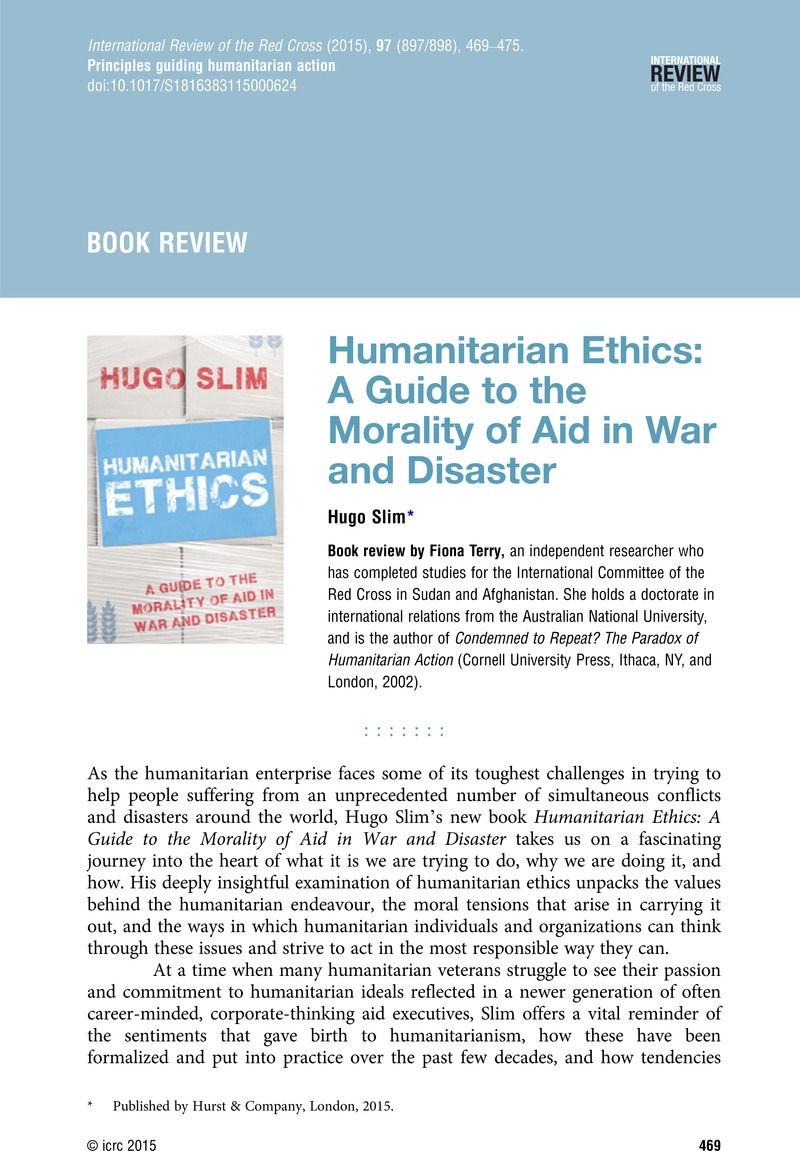Article contents
Humanitarian Ethics: A Guide to the Morality of Aid in War and DisasterHugo Slim *
Published online by Cambridge University Press: 14 September 2015
Abstract

- Type
- Books and Articles
- Information
- International Review of the Red Cross , Volume 97 , Issue 897-898: Principles guiding humanitarian action , June 2015 , pp. 469 - 475
- Copyright
- Copyright © icrc 2015
References
1 Humanitarian Ethics, p. 7.
2 Ibid., p. 156.
3 These principles are listed on p. 40, and are divided into four categories according to their main raison d’être (“principles in law”; “principles of action”, “principles of dignity, participation and stewardship”, and “principles of effectiveness”).
4 Humanitarian Ethics, p. 66.
5 Ibid., p. 107.
6 Chiara Lepora and Robert E. Goodin, On Complicity and Compromise, Oxford University Press, Oxford, 2013.
7 Humanitarian Ethics, p. 204.
8 Ibid., p. 186.
9 De Waal argues that relief is generally merely a footnote to the story of how people survive famine. Alex de Waal, Famine Crimes: Politics and the Disaster Relief Industry in Africa, Africa Rights and International African Institute in association with James Currey and Indiana University Press, Oxford and Bloomington, IN, 1997, p. 1.
10 Confidential UN investigations into three Somali NGOs were leaked to Fox News and published in January 2015. See George Russell, “Millions in UN Somalia Aid Diverted; Hints that Some Went to Terrorists”, Fox News, 20 January 2015, available at: www.foxnews.com/world/2015/01/20/millions-in-un-somalia-aid-diverted-hints-that-some-went-to-terrorists/ (last accessed in June 2015).
11 Humanitarian Ethics, above note 1, p. 47.
12 See Terry, Fiona, “The International Committee of the Red Cross in Afghanistan: Reasserting the Neutrality of Humanitarian Action”, International Review of the Red Cross, Vol. 93, No. 881, 2011, pp. 173–188CrossRefGoogle Scholar.
- 1
- Cited by


